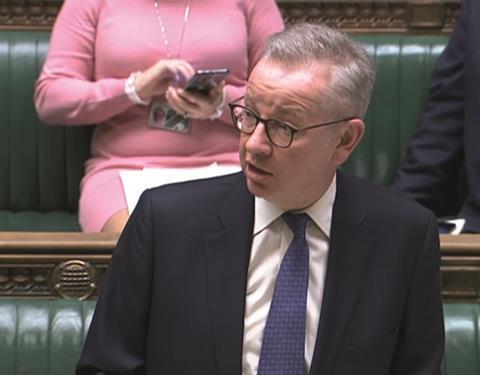Legislation to overhaul consumer regulation in social housing receives Royal Assent
A landmark piece of legislation to strengthen regulation of social landlords has received Royal Assent.
The Social Housing Regulation Act, drawn up following media reports about poor standards in some social properties, is now law. The legislation overhauls consumer regulation in the social housing sector.
Under the new legislation, the Regulator of Social Housing will be given the power to routinely inspect social landlords. The RSH is gearing up to inspect every large social landlord, including local authorities on a rolling four-year basis.

The new legislation beefs up the consumer role for the RSH, adding objectives of safety, transparency and energy efficiency to its formal objectives.
Currently, the RSH can usually only intervene on a consumer issue where a ‘serious detriment’ test is passed – placing a high threshold on the regulator’s ability to use its powers. The bill removes this test, meaning RSH can intervene in more tenant complaint cases.
It gives RSH the power to set performance improvement plans backed up with penalties for landlords who do not deliver. The RSH will also have the power to issue unlimited fines, order emergency repairs and access homes at 48 hours’ notice.
The legislation also makes it a legal requirement for around 25,000 ‘senior housing managers’ to hold specific qualifications.
DLHC has previously said ‘senior’ will be defined by the Institute for Apprenticeship and Technical Education’s occupational standards. It has also said these managers will be required to have a “housing management qualification regulated by Ofqual equivalent to a Level 4 or 5 Certificate or Diploma in Housing, or a foundation degree from the Chartered Institute of Housing.”
The Housing Ombudsman will be given powers to publish best practice guidance to landlords following investigations of tenant complaints.
>>See also: Regulator to start piloting inspections
The bill has also been amended following the inquest into the death of toddler Awaab Ishak in Rochdale due to exposure to black mould. “Awaab’s Law”, will require landlords to address damp and mould issues in set timeframes.
Housing secretary Michael Gove said: “Our landmark laws will drive up standards of social housing and give residents a proper voice.
”The Social Housing Act will help to ensure that tenants get the safe, warm and decent homes they deserve - and those who have seriously neglected their responsibilities for far too long will face the consequences.”
At-a-glance: The Social Housing Regulation Act
- gives the Regulator of Social Housing the power to carry out regular inspections of the largest social housing providers and issue unlimited fines to rogue social landlords.
- gives additional powers the Housing Ombudsman to publish best practice guidance to landlords following investigations into tenant complaints
- introduces mandatory qualification requirements for social housing managers
- gives the regulator powers to set strict time limits for social landlords to address hazards such as damp and mould
- Introduces stronger economic powers to follow inappropriate money transactions outside of the housing sector
The bill’s passage into law was welcomed by Gavin Smart, chief executive of the Chartered Institute of Housing and Kate Henderson, chief executive of the National Housing Federation.
Smart said: “The act will provide an important foundation for giving tenants’ a greater voice, improving access to redress and increasing the focus on professionalism in the sector.”
Henderson said: “Housing associations are committed to taking the act forward and demonstrating transparency and accountability to their residents.”











No comments yet